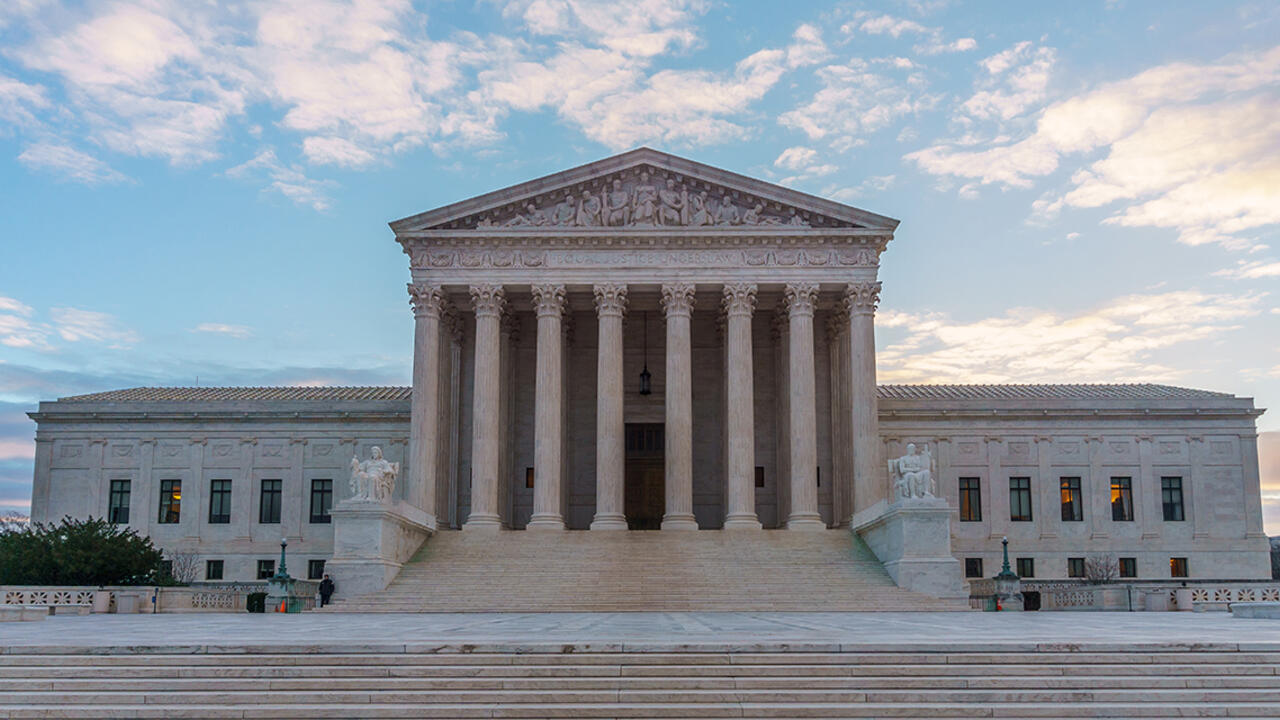Wellesley Professor Weighs In on SCOTUS Nominee, Brett Kavanaugh

In late June, Supreme Court Justice Anthony Kennedy announced he would be retiring from the court, after 30 years of service. His retirement gives President Donald Trump the opportunity for his second Supreme Court nomination and confirmation, and has raised questions about what the future holds for the court. After President Trump’s July 9 nomination of Brett Kavanaugh to the Supreme Court, The Daily Shot spoke with Thomas Burke, Ralph Emerson and Alice Freeman Palmer Professor of Political Science at Wellesley, to get his insight on this significant development.
Justice Kennedy’s retirement set the stage for a shift in the balance of power on the court—the first in decades. Why is this such a pivotal moment in our country? For our judicial system?
Thomas Burke: Actually, it’s been a conservative court for a long time, but the public has been more focused on some cultural issues, like abortion and gay rights, where the Court has been more liberal. Justice Kennedy has been a swing vote on these high-profile cases, so this nomination is getting a lot of attention.
It’s a chance for Trump to replace Kennedy with an even more reliably conservative justice. After the New Deal and then later in the 1940s and 1950s, the courts were dominated by Democratic appointees. Starting in 1968 we had this string of Republican presidents who got to make nominations to Supreme Court. It was frustrating for them because though Republican appointees dominated the Court, they didn’t always have conservative outcomes. Courts were stacked with Reagan, Nixon, and Bush appointees, but were delivering moderate liberal verdicts.
The problem Republican presidents had was they would pick nominees who wouldn’t be loyal conservative “voters,” like a conservative politician would be. This was pretty much solved by the creation of the Federalist Society, a group that most conservatives sign up for in law school. It has become a brand, and it essentially declares that you plan to be ideologically conservative on the bench. This has really created a turnaround in the last decade or so because it has ensured a string of ideologically predictable nominees.
All the people Trump was considering are Federalist Society members, and these candidates do vote very conservative. So, at this time, Kennedy is really the last of a dying breed—he was conservative, but not entirely predictable.
In reflecting on Justice Kennedy’s service on the court for 30 years, was he always considered a “swing vote,” or moderate, or did that come more gradually over time?
Burke: For most of the time he was on the bench Kennedy was the swing vote in 5-4 cases—75 percent to 85 percent of the time in the last few terms—but he was not necessarily “moderate.” There’s a difference between moderate on the Court versus moderate in society.
There’s a funny thing going on here: Conservatives in most areas of constitutional law have been on the march and liberals have been “the conservatives” trying to keep the laws as they are. For example, we see conservatives trying to make it easier for police to arrest people in criminal cases, for businesses to challenge government regulations, for states to challenge the federal government. Liberals are trying to preserve things as they are for the most part.
Kennedy was actually quite conservative—on crime, race relations, regulation, and health care, for example. He voted to overturn Obamacare, but it only survived because Justice Roberts was the fifth vote.
Has ideology historically played as big a role as it has in recent years with the selection of justices? Have nominations always been so tied to the political issues of the day?
Burke: Have these nominations always been contentious and partisan? Yes, often, even going back to the 19th century.
That said, it’s much more ideological today because what the federal courts do in the post-Brown era has become much more tied up with highly visible political issues. Nominations used to be a more insider process. Today interest groups are more involved, social media plays a role in the opening of those processes, and constituencies are much more focused on someone who is going to deliver favorable decisions for them, for 20 to 30 years.
This openness does have an impact on the justices as well: They are trying to keep the aura up of being removed from the process, from the culture. Justices have traditionally refused televised interviews and were not always even recognizable to the general public. But there’s also a celebrity influence developing, which we’ve see with justices such as Ruth Bader Ginsburg, and the recent documentary about her and the cult hero status she possess for many.
We also see justices who come to the bench with a more narrow range of experiences. Justices used to have experience with Congress and the other branches of government. That has really died out. Now, the nominees follow pretty much the same template. They have not had much of a life outside the legal world—they’ve been star students at an Ivy League law school, then judicial clerks, and then eventually served on federal appellate courts. A couple have had some exec branch experience, but, for example, there is no one that has run for office left on the Court. Sandra Day O’Connor had experience as majority leader of her state legislature, but most of the people on Trump’s list have spent their entire lives entrenched in a very narrow circle.
What challenges might Brett Kavanaugh face during the confirmation process, and how might he shape the Court in the near future, and long term?
Burke: It is a very unsurprising choice. He fits the typical template of a Republican nominee: Ivy league education, Federalist Society member, prestigious clerkships (including one with Justice Kennedy!), working in the executive branch for the Bush administration, then a nomination to the Third Circuit Court of Appeals, where he has been reliably conservative.
Anyone with as long a judicial record as his will have cases that will raise questions, and he will certainly be asked about his work with Independent Counsel Ken Starr, but barring some scandal emerging I would expect him to be confirmed. And based on his track record, he should move the Court to the right of where it was with Justice Kennedy.



